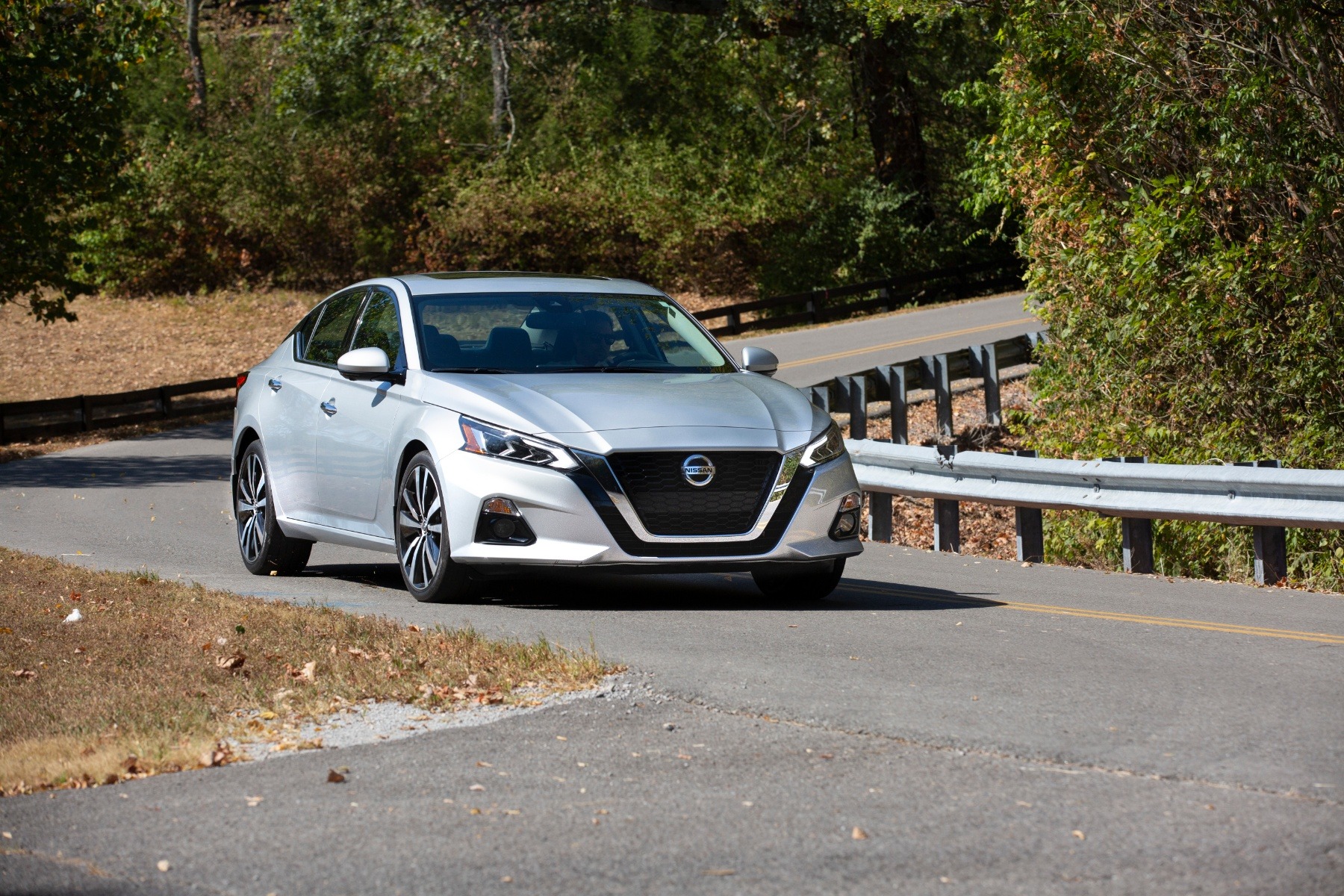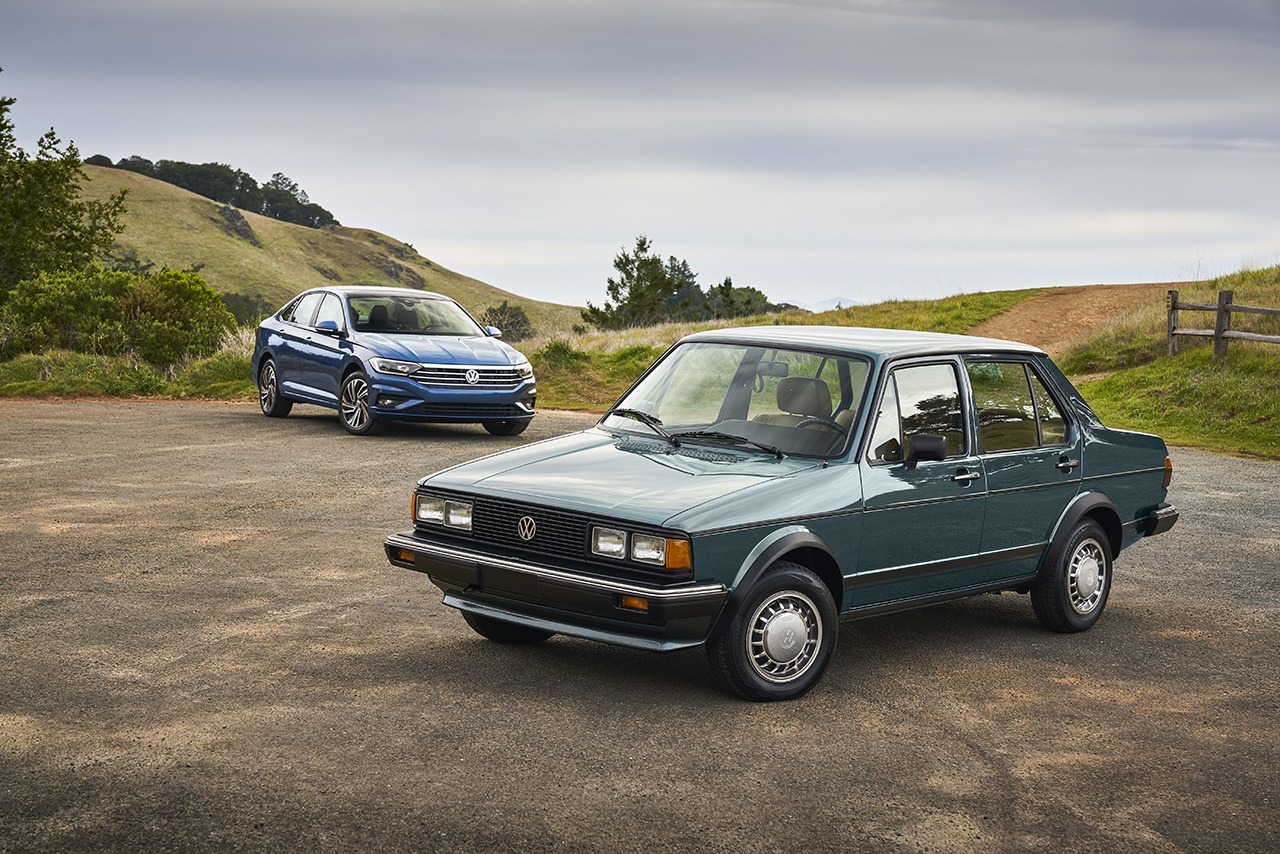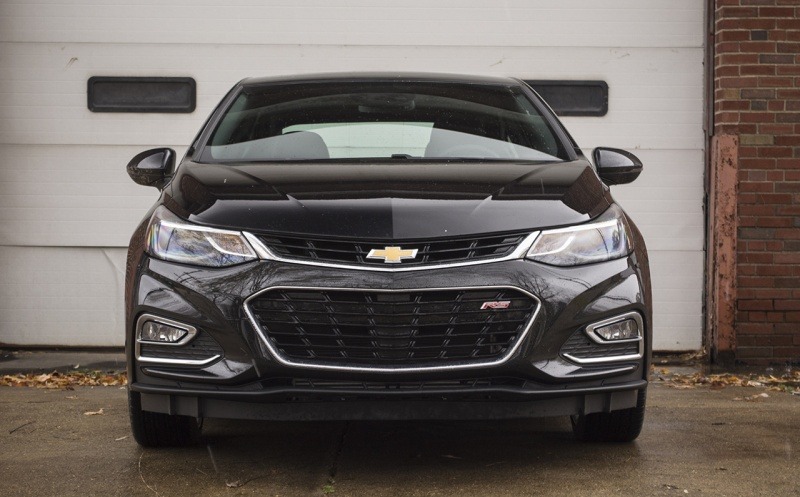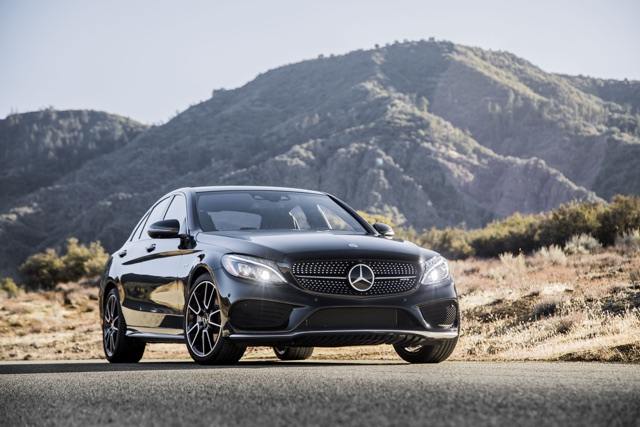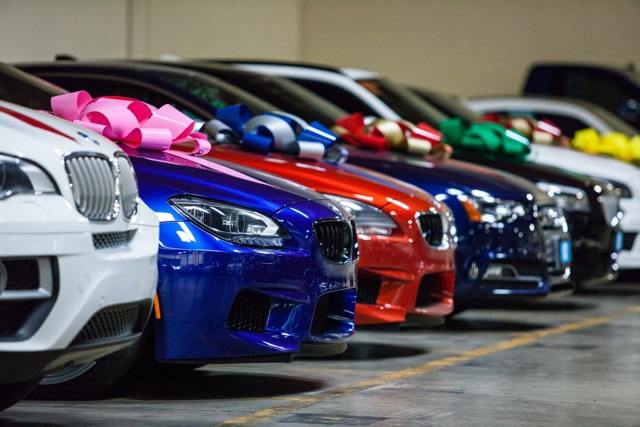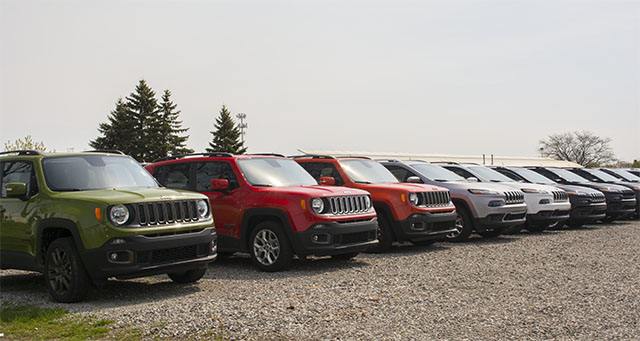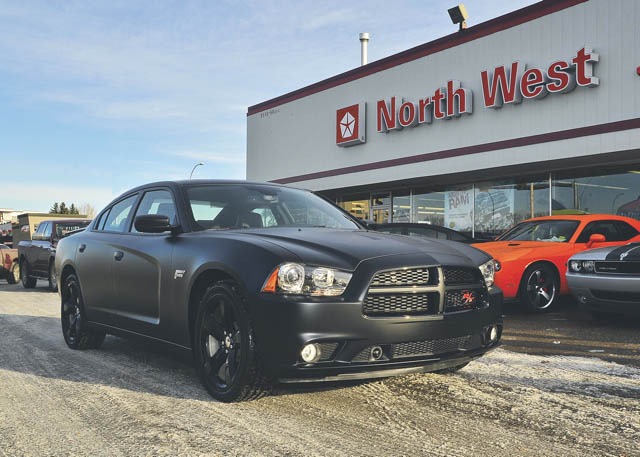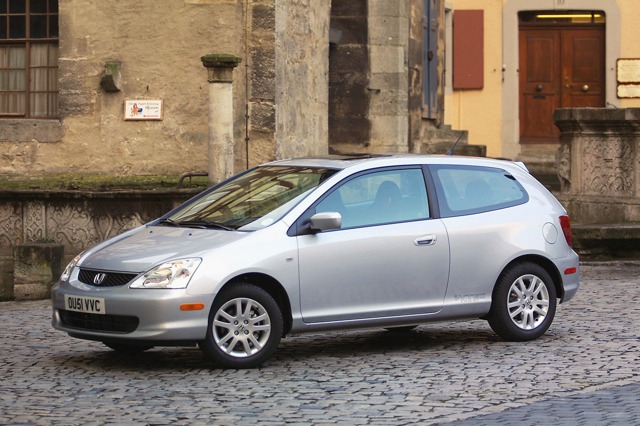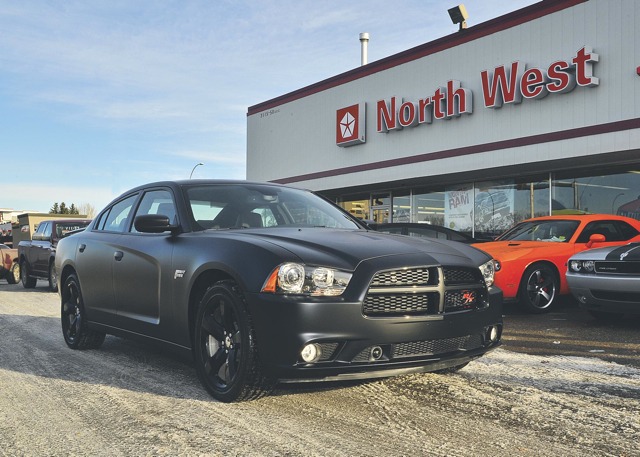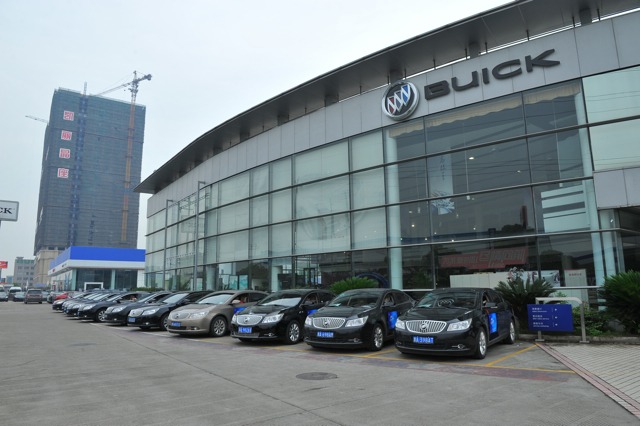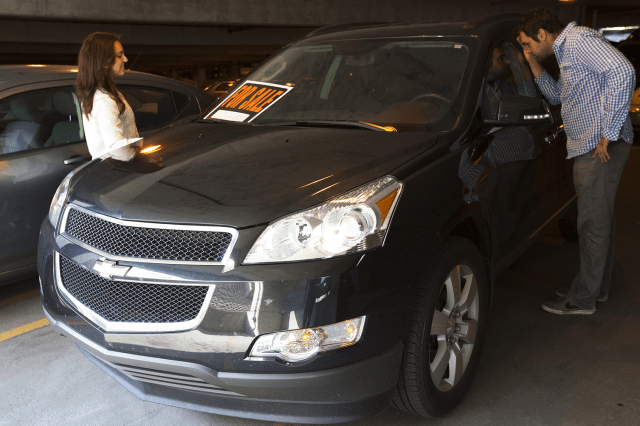Search the Community
Showing results for tags 'Used Cars'.
-
Around this time last year, rental car companies found themselves selling off a fair amount of their inventory as the COVID-19 pandemic devastated the travel industry. With travel starting to bounce back, rental car companies now find themselves with a new problem - a shortage of vehicles to rent. Usually, they would turn to automakers and buy up a batch of new cars to shore up inventory. But the on-going semiconductor shortage has automakers cutting back on production, and causing rental companies to look at used cars. “You would never go into auction to buy routine sedans and SUVs. These are special circumstances. There is a shortage of cars,” said Maryann Keller, an independent consultant. Bloomberg reports that rental car companies do buy a small amount of used cars in the event of an sudden rise in demand, but not to fully outfit their fleet. New car production has been hampered since last year as plants were shut down to stop the spread of the COVID-19 virus. Production was starting to climb back up later in the year only to be hampered again by another crisis, the lack of semiconductors and chips needed for various systems. In their first-quarter earnings call, Ford reported production was down 17 percent and could fall as much as 50 percent in the second quarter. Other automakers are making similar statements. “Our fleet acquisition team is working hard to secure additional vehicles -- both new and low-mileage used vehicles -- through all channels to meet the ongoing increase in demand.Overall, though, both new and used car inventory remain low. Our teams will continue to do everything we can to help customers with their transportation needs,” Enterprise spokeswoman Lisa Martini said via email. There is a silver lining for rental car companies as they'll be able to charge higher rates as many people begin to take vacations after spending a lot of time at home. For example, the average rate at Avis increased 3 percent in the fourth quarter, to $59.43 a day according to Hamzah Mazari, an analyst with Jefferies & Co. He expects that number to rise to $60.00 when Avis reports their first quarter results. Source: Bloomberg (Subscription Required)
-
Around this time last year, rental car companies found themselves selling off a fair amount of their inventory as the COVID-19 pandemic devastated the travel industry. With travel starting to bounce back, rental car companies now find themselves with a new problem - a shortage of vehicles to rent. Usually, they would turn to automakers and buy up a batch of new cars to shore up inventory. But the on-going semiconductor shortage has automakers cutting back on production, and causing rental companies to look at used cars. “You would never go into auction to buy routine sedans and SUVs. These are special circumstances. There is a shortage of cars,” said Maryann Keller, an independent consultant. Bloomberg reports that rental car companies do buy a small amount of used cars in the event of an sudden rise in demand, but not to fully outfit their fleet. New car production has been hampered since last year as plants were shut down to stop the spread of the COVID-19 virus. Production was starting to climb back up later in the year only to be hampered again by another crisis, the lack of semiconductors and chips needed for various systems. In their first-quarter earnings call, Ford reported production was down 17 percent and could fall as much as 50 percent in the second quarter. Other automakers are making similar statements. “Our fleet acquisition team is working hard to secure additional vehicles -- both new and low-mileage used vehicles -- through all channels to meet the ongoing increase in demand.Overall, though, both new and used car inventory remain low. Our teams will continue to do everything we can to help customers with their transportation needs,” Enterprise spokeswoman Lisa Martini said via email. There is a silver lining for rental car companies as they'll be able to charge higher rates as many people begin to take vacations after spending a lot of time at home. For example, the average rate at Avis increased 3 percent in the fourth quarter, to $59.43 a day according to Hamzah Mazari, an analyst with Jefferies & Co. He expects that number to rise to $60.00 when Avis reports their first quarter results. Source: Bloomberg (Subscription Required) View full article
-
New cars are getting more and more expensive. Kelly Blue Book reported earlier this month that the average transaction price of a new car was $35,541, up 1.8 percent compared to the same time last year. This has more consumers checking out the used car lot, causing demand to rise. “Customers forget a new car is now more than $30,000 and they expect it to be $20,000,” said Brian Allan, a senior director at Galpin Motors Inc., to the Wall Street Journal. “When people see the price has gone up, it is sticker shock, especially when people only buy a car every five to six years." Data from Edmunds reports that the gap between the price of a new and used car is now at one "of its largest points in more than a decade". Key reasons for this gap include consumers trending to trucks and SUVs, and automakers adding more expensive tech. This summer saw a strong demand for used cars and analysts are predicting this trend to continue throughout the rest of the year, partly due to dealers stocking more trucks and utility vehicles. Prices of used cars are also on the rise. Edmunds reports that buyers paid an average of $22,489 for a three-year old used car in the second-quarter - up $865 from the same time last year. This isn't good news for automakers as new car sales are starting to slow down and pressure could begin building to deepen discounts to lure consumers back. Lenders have been extending the length of loans and introducing 0 percent financing to make buying new more attractive. Source: Wall Street Journal (Subscription Required) View full article
-
New cars are getting more and more expensive. Kelly Blue Book reported earlier this month that the average transaction price of a new car was $35,541, up 1.8 percent compared to the same time last year. This has more consumers checking out the used car lot, causing demand to rise. “Customers forget a new car is now more than $30,000 and they expect it to be $20,000,” said Brian Allan, a senior director at Galpin Motors Inc., to the Wall Street Journal. “When people see the price has gone up, it is sticker shock, especially when people only buy a car every five to six years." Data from Edmunds reports that the gap between the price of a new and used car is now at one "of its largest points in more than a decade". Key reasons for this gap include consumers trending to trucks and SUVs, and automakers adding more expensive tech. This summer saw a strong demand for used cars and analysts are predicting this trend to continue throughout the rest of the year, partly due to dealers stocking more trucks and utility vehicles. Prices of used cars are also on the rise. Edmunds reports that buyers paid an average of $22,489 for a three-year old used car in the second-quarter - up $865 from the same time last year. This isn't good news for automakers as new car sales are starting to slow down and pressure could begin building to deepen discounts to lure consumers back. Lenders have been extending the length of loans and introducing 0 percent financing to make buying new more attractive. Source: Wall Street Journal (Subscription Required)
-
With more people trending towards trucks and utility vehicles, it would be expected that prices on cars would be falling. But not on used cars according to Edmunds. In their latest Used Car Report, Edmunds says the average price for a used subcompact rose 3 percent in the first quarter. Compacts saw their average price increase by 3.9 percent. The reason according to the report is due to the increasing cost for a gallon of gas. "Used-car shoppers are typically more price-sensitive to changes in the market, but this is the first time in years that we're seeing renewed demand for smaller vehicles With rising fuel costs breathing fresh air into this segment, subcompact and compact cars are finally retaining value again," said Ivan Drury, senior manager of industry analysis at Edmunds. With rising gas prices, the expectation would be that prices on used trucks and utility vehicles would drop. But Edmunds says prices for these models are holding steady as buyers are willing to pay a bit more at the pump as they place "value on increased cargo capacity, ride height, and other SUV and truck features". Source: Edmunds View full article
-

Prices of Used Subcompact and Compact Vehicles Are Rising
William Maley posted an article in Automotive Industry
With more people trending towards trucks and utility vehicles, it would be expected that prices on cars would be falling. But not on used cars according to Edmunds. In their latest Used Car Report, Edmunds says the average price for a used subcompact rose 3 percent in the first quarter. Compacts saw their average price increase by 3.9 percent. The reason according to the report is due to the increasing cost for a gallon of gas. "Used-car shoppers are typically more price-sensitive to changes in the market, but this is the first time in years that we're seeing renewed demand for smaller vehicles With rising fuel costs breathing fresh air into this segment, subcompact and compact cars are finally retaining value again," said Ivan Drury, senior manager of industry analysis at Edmunds. With rising gas prices, the expectation would be that prices on used trucks and utility vehicles would drop. But Edmunds says prices for these models are holding steady as buyers are willing to pay a bit more at the pump as they place "value on increased cargo capacity, ride height, and other SUV and truck features". Source: Edmunds -
Luxury automakers have been taking full advantage of the high-demand for SUVs and crossovers and raking in the dough. But as Neuton's third law of physics tells us, "for every action, there is an equal and opposite reaction." In the case of luxury automakers, they have a number of sedans and coupes from lease turn-ins that they cannot sell. “It’s not necessarily the overwhelming amount of vehicles, it’s the mix of those flood of vehicles. You’re throwing all these cars into the marketplace a couple years after it has evaporated and jumped into SUVs,” said Scott Keogh, president of Audi of America to Bloomberg. This puts a lot of strain on luxury automakers as there is too much supply and not much demand, causing the value on used cars to fall. In turn, automakers have to raise the prices on leases to make up for the amount of depreciation over the term of the lease. It will cause consumers to be priced out of marketplace or automakers to offer generous incentives on leases. For luxury automakers, this is a big problem as they rely on leasing more than mainstream brands. According to Autodata, most luxury brands have increased incentives on their cars through the first nine months of the year. Audi: $4,696 (up $314) Lexus: $5,323 (up $296) Mercedes-Benz: $6,732 (up $289) So if you find yourself wanting a luxury sedan or coupe, now might be the best time to score a really good deal. Source: Bloomberg
- 42 comments
-
- headaches
- luxury automakers
-
(and 2 more)
Tagged with:
-
Luxury automakers have been taking full advantage of the high-demand for SUVs and crossovers and raking in the dough. But as Neuton's third law of physics tells us, "for every action, there is an equal and opposite reaction." In the case of luxury automakers, they have a number of sedans and coupes from lease turn-ins that they cannot sell. “It’s not necessarily the overwhelming amount of vehicles, it’s the mix of those flood of vehicles. You’re throwing all these cars into the marketplace a couple years after it has evaporated and jumped into SUVs,” said Scott Keogh, president of Audi of America to Bloomberg. This puts a lot of strain on luxury automakers as there is too much supply and not much demand, causing the value on used cars to fall. In turn, automakers have to raise the prices on leases to make up for the amount of depreciation over the term of the lease. It will cause consumers to be priced out of marketplace or automakers to offer generous incentives on leases. For luxury automakers, this is a big problem as they rely on leasing more than mainstream brands. According to Autodata, most luxury brands have increased incentives on their cars through the first nine months of the year. Audi: $4,696 (up $314) Lexus: $5,323 (up $296) Mercedes-Benz: $6,732 (up $289) So if you find yourself wanting a luxury sedan or coupe, now might be the best time to score a really good deal. Source: Bloomberg View full article
- 42 replies
-
- headaches
- luxury automakers
-
(and 2 more)
Tagged with:
-
The past few years have seen a number of start-ups tackling an issue that has been a thorn in the side of consumers, buying a used car. Companies such as Beepi, Carvana, Shift, and Vroom have their own take on selling used vehicles, but the goal is the same - make it less of a hassle to buy a car by selling directly to a consumer through the internet at a lower price. But one of these companies has folded most of their operations. Beepi, one of the first companies to launch back in 2014 folded most of its operations last week and announced yesterday that it would be merging Fair.com, a soon to launch online vehicle retail platform. As a result, 180 people lost their jobs while the remaining 80 employees and Beepi CEO Ale Resnik will move over to Fair.com. "It's disappointing. We were collectively working to make a massive industry better. I was in support of what they were trying to do -- to bring more visibility to us all," said Gaurav Mishra, chief marketing officer for Vroom Inc. to Automotive News. Beepi's business model worked like this; a consumer would contact Beepi about selling their vehicle. The company would send out a team member to inspect the vehicle. If it meets their criteria, pictures of the vehicle would be taken and would be posted online. If someone decides to buy the vehicle, Beepi will deliver the vehicle with a bow. If the vehicle didn't sell within 30 days, Beepi would offer to buy them. Seems like a good business plan except for one thing, a buyer couldn't test drive the vehicle. Alan Haig, president of buy-sell advisory firm Haig Partners said one of the big issues for these companies is that a customer cannot kick the tires. A study done by Auto Trader back in 2015 backs this up with 90 percent of shoppers would not buy a vehicle without doing a test drive. "Eighty-eight percent of consumers say they will not buy a car without test driving it first. (Beepi) spent millions of dollars on TV and radio trying to convince consumers that buying without ever seeing a car is the future. We, on the other hand, provide customers with an amazing test drive delivered to your door experience," said Shift CEO George Arison in an email to employees and obtained by USA Today. This email also revealed that Beepi reached out to Shift about possibly buying them. Beepi also lost one of their major backers earlier this year. TechCrunch believes that SAIC which was revealed to be an investor last year decided to pull out. It is unknown as to why SAIC decided to leave. "There are plenty of companies out there claiming to be on the cusp of 'obsoleting' the traditional car-buying process, but it’s easier said than done, and nobody has accomplished it despite a lot of time and money spent trying," said Karl Brauer, an analyst with Kelly Blue Book. Source: Automotive News (Subscription Required), TechCrunch, USA Today View full article
-
The past few years have seen a number of start-ups tackling an issue that has been a thorn in the side of consumers, buying a used car. Companies such as Beepi, Carvana, Shift, and Vroom have their own take on selling used vehicles, but the goal is the same - make it less of a hassle to buy a car by selling directly to a consumer through the internet at a lower price. But one of these companies has folded most of their operations. Beepi, one of the first companies to launch back in 2014 folded most of its operations last week and announced yesterday that it would be merging Fair.com, a soon to launch online vehicle retail platform. As a result, 180 people lost their jobs while the remaining 80 employees and Beepi CEO Ale Resnik will move over to Fair.com. "It's disappointing. We were collectively working to make a massive industry better. I was in support of what they were trying to do -- to bring more visibility to us all," said Gaurav Mishra, chief marketing officer for Vroom Inc. to Automotive News. Beepi's business model worked like this; a consumer would contact Beepi about selling their vehicle. The company would send out a team member to inspect the vehicle. If it meets their criteria, pictures of the vehicle would be taken and would be posted online. If someone decides to buy the vehicle, Beepi will deliver the vehicle with a bow. If the vehicle didn't sell within 30 days, Beepi would offer to buy them. Seems like a good business plan except for one thing, a buyer couldn't test drive the vehicle. Alan Haig, president of buy-sell advisory firm Haig Partners said one of the big issues for these companies is that a customer cannot kick the tires. A study done by Auto Trader back in 2015 backs this up with 90 percent of shoppers would not buy a vehicle without doing a test drive. "Eighty-eight percent of consumers say they will not buy a car without test driving it first. (Beepi) spent millions of dollars on TV and radio trying to convince consumers that buying without ever seeing a car is the future. We, on the other hand, provide customers with an amazing test drive delivered to your door experience," said Shift CEO George Arison in an email to employees and obtained by USA Today. This email also revealed that Beepi reached out to Shift about possibly buying them. Beepi also lost one of their major backers earlier this year. TechCrunch believes that SAIC which was revealed to be an investor last year decided to pull out. It is unknown as to why SAIC decided to leave. "There are plenty of companies out there claiming to be on the cusp of 'obsoleting' the traditional car-buying process, but it’s easier said than done, and nobody has accomplished it despite a lot of time and money spent trying," said Karl Brauer, an analyst with Kelly Blue Book. Source: Automotive News (Subscription Required), TechCrunch, USA Today
-

More Consumers Find Themselves 'Upside Down' On Trade-Ins
William Maley posted an article in Automotive Industry
A record number of consumers are finding themselves 'underwater' when it comes time to trade-in their vehicle - the vehicle is worth less than what they owe on their loan. The Detroit Free Press cites a study done by Edmunds revealing that in the second quarter of this year, 32 percent or nearly one-third of vehicles being traded in fall into the 'underwater' category. This isn't good news for consumers since the difference is tacked on to the new vehicle they had their eye on. To put this in perspective, the previous high was 29.2% in 2006, around the time where the housing market was reaching its cresting point. “There’s been a lot of water building behind this dam for some time because of higher transaction prices, lower down payments and long-term loans," said Greg McBride, chief analyst with Bankrate.com. "It’s problematic for the consumer because there’s no foolproof way to eliminate his financial exposure. If the car gets stolen, is totaled or you get new car envy while you’re upside down then it’s a big problem." In October, the average transaction price of a new car was $34,663 according to Kelly Blue Book. The average length of a new car loan hovers around 68 months according to Experian Automotive. This rises to 72 months if it's a subprime buyer - someone whose credit score is below the low 600s. Not helping matters is the amount of vehicles being returned from leases, flooding the used car marketplace. This increase is causing dealers not willing to spend a lot of money at auction. Source: Detroit Free Press -
A record number of consumers are finding themselves 'underwater' when it comes time to trade-in their vehicle - the vehicle is worth less than what they owe on their loan. The Detroit Free Press cites a study done by Edmunds revealing that in the second quarter of this year, 32 percent or nearly one-third of vehicles being traded in fall into the 'underwater' category. This isn't good news for consumers since the difference is tacked on to the new vehicle they had their eye on. To put this in perspective, the previous high was 29.2% in 2006, around the time where the housing market was reaching its cresting point. “There’s been a lot of water building behind this dam for some time because of higher transaction prices, lower down payments and long-term loans," said Greg McBride, chief analyst with Bankrate.com. "It’s problematic for the consumer because there’s no foolproof way to eliminate his financial exposure. If the car gets stolen, is totaled or you get new car envy while you’re upside down then it’s a big problem." In October, the average transaction price of a new car was $34,663 according to Kelly Blue Book. The average length of a new car loan hovers around 68 months according to Experian Automotive. This rises to 72 months if it's a subprime buyer - someone whose credit score is below the low 600s. Not helping matters is the amount of vehicles being returned from leases, flooding the used car marketplace. This increase is causing dealers not willing to spend a lot of money at auction. Source: Detroit Free Press View full article
-

The Average Price of A Used Car Has Reached A New High
William Maley posted an article in Automotive Industry
With the average price of new cars on the rise, the price of used cars follows suit. A new study done by Edmunds finds the average price of a used car has hit a new record high in the second quarter. The average price of a used car has climbed to $18,800, up 7.6 percent when compared to the same time last year. "People are buying more trucks and SUVs, and they're getting them better equipped. More expensive new vehicles means more expensive used vehicles," said Jessica Caldwell, analyst at Edmunds.com. What is causing the uptick in used car prices? The same items which are causing new car prices to go up; better economic outlook, low unemployment, low-interest rates, and low gas prices. But also helping the increase is the amount of off-lease vehicles entering into the used car marketplace. "With inventory finally at a better place, people have a lot more options," Caldwell said. Source: Chicago Tribune via The Detroit News -
With the average price of new cars on the rise, the price of used cars follows suit. A new study done by Edmunds finds the average price of a used car has hit a new record high in the second quarter. The average price of a used car has climbed to $18,800, up 7.6 percent when compared to the same time last year. "People are buying more trucks and SUVs, and they're getting them better equipped. More expensive new vehicles means more expensive used vehicles," said Jessica Caldwell, analyst at Edmunds.com. What is causing the uptick in used car prices? The same items which are causing new car prices to go up; better economic outlook, low unemployment, low-interest rates, and low gas prices. But also helping the increase is the amount of off-lease vehicles entering into the used car marketplace. "With inventory finally at a better place, people have a lot more options," Caldwell said. Source: Chicago Tribune via The Detroit News View full article
-
If you are considering buying a used car this year, then we have some good news for you. A new vehicle depreciation report from used car value service, Black Book and Fitch Ratings Inc., says that 2015 will see used car values depreciate 14.5 percent. This is an increase from 2014's deprecation rate of 12.1 percent. So why the increase in depreciation? It comes down to two key factors; an increased supply in used cars and a larger volume of off-lease vehicles. “2014 depreciation was defined by pockets of volatility due to seasonality, harsh weather patterns and falling fuel prices impacting smaller cars and trucks of all sizes. Looking ahead, lower consumer demand and CAFÉ-driven model competition will place higher depreciation pressure on smaller car segments particularly, but trucks should have stable retention in 2015 due to balanced production levels and strong housing and service economies,” said Anil Goyal, Vice President of Analytics and Strategic Partnerships for Black Book. Source: Auto Guide, Kicking Tires View full article
- 5 replies
-
- Depreciation
- Fall
-
(and 3 more)
Tagged with:
-
If you are considering buying a used car this year, then we have some good news for you. A new vehicle depreciation report from used car value service, Black Book and Fitch Ratings Inc., says that 2015 will see used car values depreciate 14.5 percent. This is an increase from 2014's deprecation rate of 12.1 percent. So why the increase in depreciation? It comes down to two key factors; an increased supply in used cars and a larger volume of off-lease vehicles. “2014 depreciation was defined by pockets of volatility due to seasonality, harsh weather patterns and falling fuel prices impacting smaller cars and trucks of all sizes. Looking ahead, lower consumer demand and CAFÉ-driven model competition will place higher depreciation pressure on smaller car segments particularly, but trucks should have stable retention in 2015 due to balanced production levels and strong housing and service economies,” said Anil Goyal, Vice President of Analytics and Strategic Partnerships for Black Book. Source: Auto Guide, Kicking Tires
- 5 comments
-
- Depreciation
- Fall
-
(and 3 more)
Tagged with:
-
Since the recession has ended, the average price of a used car was soared due limited supply. But The Detroit News says with more vehicles coming in due to leases coming to an end, prices are beginning to fall. According to CNW Research, the average transaction price of a used car in September was $10,963. Compared to the same time last year, the average has dropped 2.1 percent. "During the recession, it almost cost as much to get a used car as it did to get a new car, but now the market is going back to historical norms and it's going to be better every month. From 2008 to 2012, there was a significant growth in the number of leased cars and now they're all coming back to the market. As supply is increasing, auction values are dropping ... making used cars more affordable," said Larry Dominique, vice president of TrueCar. Used car supplies are on the rise as well, with 9.76 million vehicles sitting on used lots in September. That's an increase of 1.5 percent when compared to the same time last year. But there are downsides to increase in used car supplies. Analysts say the increase of supplies means it will be harder for dealers to move vehicles. Also expect an increase in lease rates. Source: The Detroit News William Maley is a staff writer for Cheers & Gears. He can be reached at [email protected] or you can follow him on twitter at @realmudmonster. View full article
-
Since the recession has ended, the average price of a used car was soared due limited supply. But The Detroit News says with more vehicles coming in due to leases coming to an end, prices are beginning to fall. According to CNW Research, the average transaction price of a used car in September was $10,963. Compared to the same time last year, the average has dropped 2.1 percent. "During the recession, it almost cost as much to get a used car as it did to get a new car, but now the market is going back to historical norms and it's going to be better every month. From 2008 to 2012, there was a significant growth in the number of leased cars and now they're all coming back to the market. As supply is increasing, auction values are dropping ... making used cars more affordable," said Larry Dominique, vice president of TrueCar. Used car supplies are on the rise as well, with 9.76 million vehicles sitting on used lots in September. That's an increase of 1.5 percent when compared to the same time last year. But there are downsides to increase in used car supplies. Analysts say the increase of supplies means it will be harder for dealers to move vehicles. Also expect an increase in lease rates. Source: The Detroit News William Maley is a staff writer for Cheers & Gears. He can be reached at [email protected] or you can follow him on twitter at @realmudmonster.
-
William Maley Staff Writer - CheersandGears.com July 30, 2013 Interested in buying a used car? Then we got some good news for you. According to Associated Press (via The Detroit News), prices of used cars are dropping. Despite hitting an all-time high back in 2011 thanks to fewer used cars in stock, prices since then have been declining. According to to data from auction company Manheim, the average sale price of a vehicle at auction in June was $11,031, down 6 percent when compared to the peak of used car prices in May 2011. The reason? Sales of new vehicles are on the rise, which means an increase of used cars. Which vehicle segment saw the largest drop? That would be hybrids which saw a 15 percent drop in their three-year value. Following that are compact cars which saw an 8.5 percent drop and small SUVs with a 7 percent drop. Luxury vehicles and trucks saw the lowest drop of one percent. Source: The Detroit News William Maley is a staff writer for Cheers & Gears. He can be reached at [email protected] or you can follow him on twitter at @realmudmonster.
-
William Maley Staff Writer - CheersandGears.com July 30, 2013 Interested in buying a used car? Then we got some good news for you. According to Associated Press (via The Detroit News), prices of used cars are dropping. Despite hitting an all-time high back in 2011 thanks to fewer used cars in stock, prices since then have been declining. According to to data from auction company Manheim, the average sale price of a vehicle at auction in June was $11,031, down 6 percent when compared to the peak of used car prices in May 2011. The reason? Sales of new vehicles are on the rise, which means an increase of used cars. Which vehicle segment saw the largest drop? That would be hybrids which saw a 15 percent drop in their three-year value. Following that are compact cars which saw an 8.5 percent drop and small SUVs with a 7 percent drop. Luxury vehicles and trucks saw the lowest drop of one percent. Source: The Detroit News William Maley is a staff writer for Cheers & Gears. He can be reached at [email protected] or you can follow him on twitter at @realmudmonster. View full article
-
William Maley Staff Writer - CheersandGears.com September 16, 2012 This year saw the average price of the used car reach an all-time high due to severe shortage of used vehicles. “The supply right now is so low, that is controlling everything in the used-market values. There just aren’t enough vehicles out there relative to used-car demand,” said Eric Lyman, ALG’s vice president of residual value solutions. However the supply is beginning to increase slowly thanks in part turn-around in new vehicle sales. With this, ALG believes within the next twelve months, the average used-vehicle price will fall 4 to 5%. “We’re seeing sort of a landing back to a normal used-car market environment. With the financial crisis of 2008, you see that huge decline in the used-car value index. Since that time, we’ve seen this huge recovery,” said Lyman. They also see within two to three years, the average price dropping 8 to 10%. Source: Automotive News (Subscription Required) William Maley is a staff writer for Cheers & Gears. He can be reached at [email protected] or you can follow him on twitter at @realmudmonster. View full article
-

Used Car Prices To Go Down In The Coming Year
William Maley posted an article in Automotive Industry
William Maley Staff Writer - CheersandGears.com September 16, 2012 This year saw the average price of the used car reach an all-time high due to severe shortage of used vehicles. “The supply right now is so low, that is controlling everything in the used-market values. There just aren’t enough vehicles out there relative to used-car demand,” said Eric Lyman, ALG’s vice president of residual value solutions. However the supply is beginning to increase slowly thanks in part turn-around in new vehicle sales. With this, ALG believes within the next twelve months, the average used-vehicle price will fall 4 to 5%. “We’re seeing sort of a landing back to a normal used-car market environment. With the financial crisis of 2008, you see that huge decline in the used-car value index. Since that time, we’ve seen this huge recovery,” said Lyman. They also see within two to three years, the average price dropping 8 to 10%. Source: Automotive News (Subscription Required) William Maley is a staff writer for Cheers & Gears. He can be reached at [email protected] or you can follow him on twitter at @realmudmonster.


